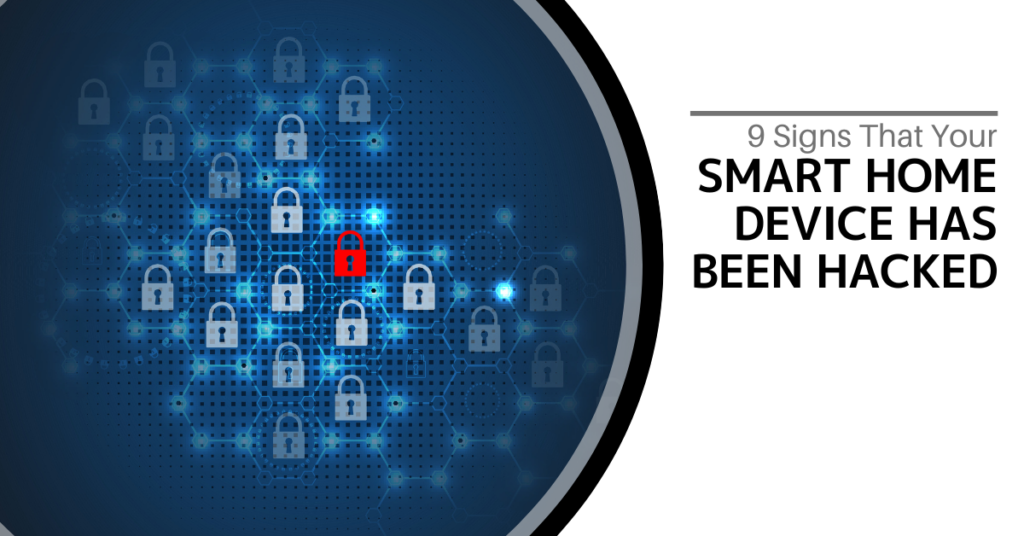|
Getting your Trinity Audio player ready...
|

Smart home technology is gaining widespread adoption due to its convenience, but it comes with significant security risks. These devices can be vulnerable to hackers, who may access personal information, monitor your activities, or even cause damage to your home.
Many people overlook the dangers associated with smart home devices. Despite 75% of users expressing some level of concern over data privacy, most continue to use these technologies. As we embrace smart living, staying aware of potential cyber threats is essential, as a compromised system might go unnoticed.
How can you determine if your smart home devices have been hacked? Look for the following warning signs:
1. Unusual Smart Home Device Behavior
Unexpected behavior is a common indicator that your smart device may have been compromised. If you notice your devices acting unpredictably, such as lights flickering, thermostat settings changing, or smart locks malfunctioning, it’s crucial to investigate. Hackers often tamper with these devices to create disruptions. Early detection can prevent further issues.
2. Irregular Network Activity
Monitoring your home network is a key component of cybersecurity. If you’ve observed a sudden increase in data usage or unusual traffic patterns, it could suggest unauthorized access. Hackers may exploit your smart devices to launch attacks or steal sensitive data. Regularly checking your router’s activity logs can help you detect abnormal network behavior.
3. Unfamiliar Sounds or Voices coming from Smart Home Devices
Smart speakers and voice-activated assistants are now common in many homes. If you begin hearing unfamiliar voices or strange sounds from these devices, it’s a cause for concern. Hackers could be using compromised devices to eavesdrop or communicate with household members, posing significant privacy risks. Make sure your smart devices respond only to authorized voices.
4. Unauthorized Changes to Smart Home Device Settings
Smart devices allow for customizable settings to suit your preferences. If you notice unauthorized changes to these settings, such as camera angles, sensor sensitivity, or device preferences, it may indicate that a hacker has accessed your system. Regularly reviewing and updating your settings can help you maintain control over your smart home.
5. Unexplained Data Transfers
Smart devices frequently collect and transmit data to the cloud for storage or analysis. Keep an eye on your device’s data usage and be cautious of any unexplained data transfers. Hackers may exploit vulnerabilities to extract sensitive information from your devices. Monitoring data usage patterns can help you spot any suspicious activity.
6. Inability to Access Devices
Finding yourself suddenly locked out of your smart home devices could be a sign of hacking. Hackers may change passwords or enable two-factor authentication without your consent, taking control of your accounts and preventing you from managing your devices. Act quickly to regain access and secure your accounts if you suspect unauthorized access.
7. Unknown Devices on Your Network
Regularly review the list of devices connected to your home network. If you spot unfamiliar or unauthorized devices, it could be a sign that someone has breached your network. Hackers often connect to networks to exploit vulnerabilities in smart devices or launch attacks. Secure your network with strong passwords and consider network segmentation for added protection.
8. Frequent Software Issues
Smart devices receive regular software updates to patch vulnerabilities and improve security. If you notice frequent software glitches or if your device fails to update, it could be a sign of interference by a malicious actor. Ensure your smart devices are running the latest firmware to keep them secure.
9. Notifications of Changes You Didn’t Make
Many smart devices send notifications or emails to confirm changes, such as alterations to settings, passwords, or device access. If you receive such notifications for actions you didn’t take, it could indicate unauthorized access. Take immediate steps to secure your account, including changing passwords and reviewing access permissions.
Need Help Securing Your Smart Home?
As smart home technology advances, so must our approach to cybersecurity. Recognizing the signs that your smart home devices have been compromised is the first step in protecting your digital space.
While smart devices can enhance your lifestyle, they require diligent maintenance and security measures. If you need assistance, we’re here to help ensure your smart home remains a safe and innovative space, free from cyber threats. Contact us today to schedule a smart home security consultation.
Twintel has grown into an expansive, full team of IT services professionals, acting as the outsourced IT department of non-profits, small to mid-size businesses, and enterprise-level corporations in Orange County, across California, and nationally.
Today, it’s the strength and deep expertise of the Twintel team that drives positive outcomes for clients. Each of the support staff, technicians, and engineers works diligently each day to make sure that the companies served have the seamless, secure, and stable IT environments needed to allow them to pursue their organizational objectives.